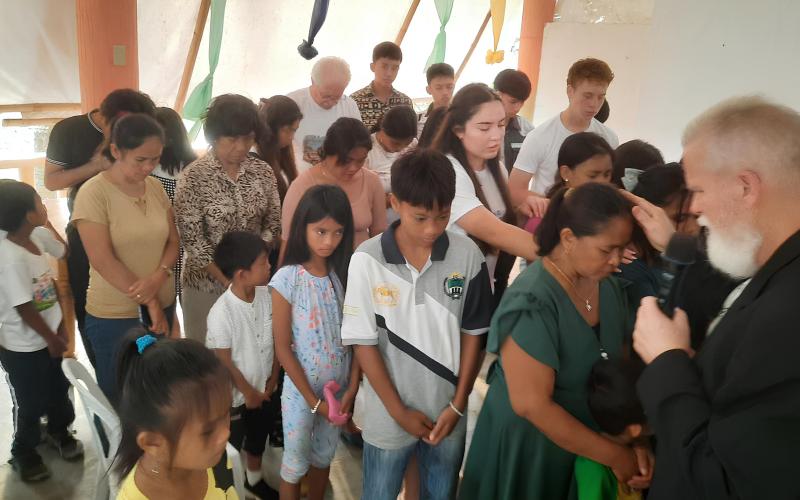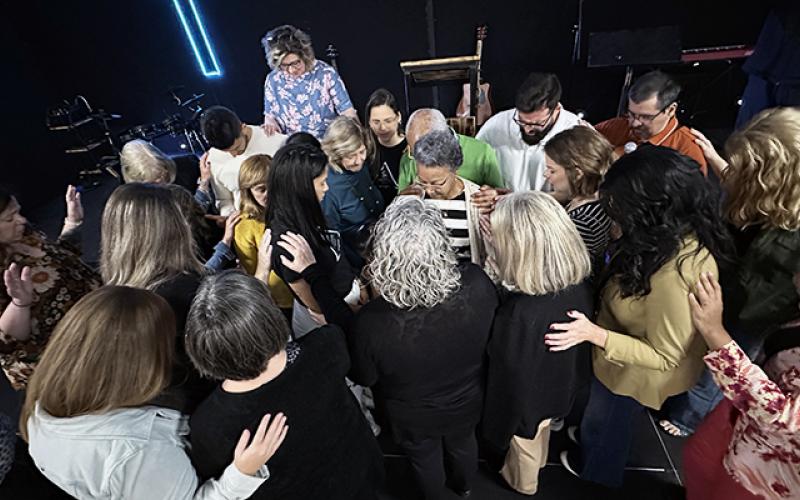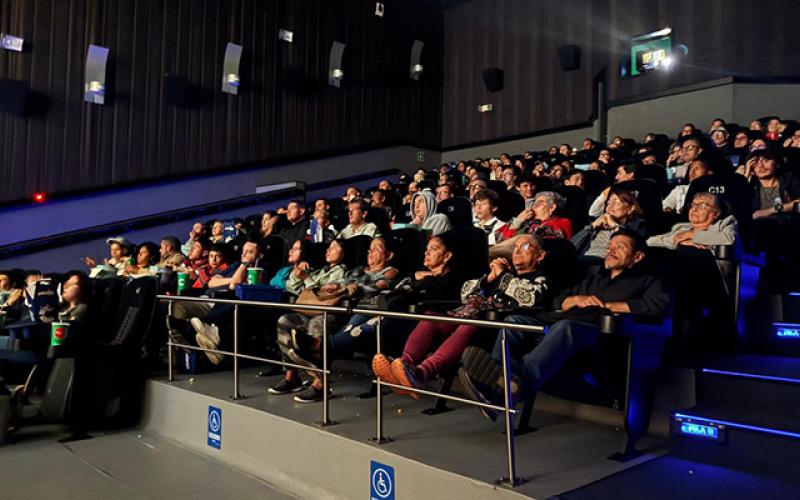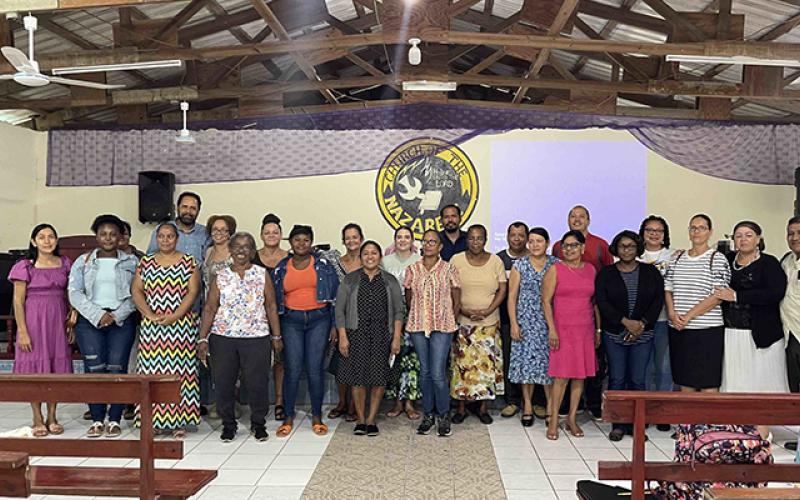
The right place: Ministering to Syrian-Armenian refugees
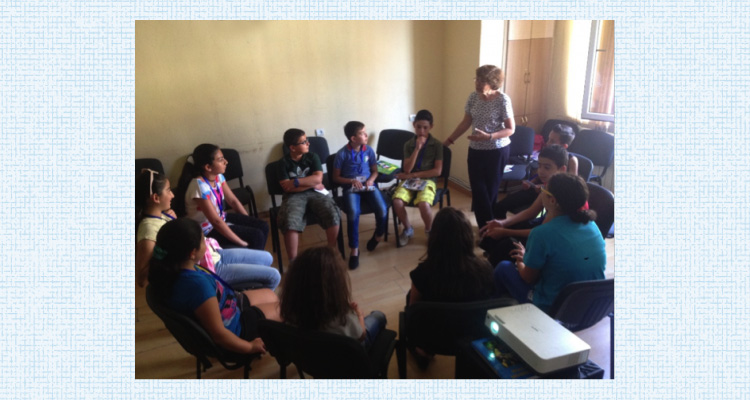
For many Syrian-Armenians who have fled Syria during the past six years of civil war, finding refuge in Armenia is coming home — and not.
Zareh Mangilikian knows what it’s like. A jeweler in Yerevan, Armenia, he is also a man who, together with his family, has allowed the Lord to prepare and guide him to exactly the right place. Among a people who are still struggling to come to terms with their refugee tragedy a century ago, Zareh is using the experiences God has given him to help refugees returning “home” in face of the current crisis to truly find a home.
The long way ‘home’
Zareh was born in Aleppo, Syria, to a family of Syrian-Armenians. It was Zareh’s grandfather who had come there as a refugee from West Armenia in 1915, fleeing the genocide that took his two brothers’ lives. The family attended an Armenian Evangelical Church in Aleppo, and thus Zareh grew up in a Christian environment, moving through Sunday school, teen club, and youth group. In 2000, he moved to Lebanon, where he was also involved in church ministry and eventually met his wife, Rita Lao, the daughter of a Taiwanese father and an Armenian-Lebanese mother.
Two children were born to the couple, a boy now aged 9 and a girl aged 6, and in 2012 the young family moved to Taiwan to explore the country and job opportunities there. But they soon discovered it was not the right place for them — so they settled in Armenia instead.
“My brother had long encouraged me to apply for Armenian citizenship, but before I thought I wouldn't need it,” Zareh remembers. “I finally applied for Armenian citizenship at the embassy in Lebanon just before we moved to Taiwan – I picked up the passport five days before we left. If I had not got my passport, I wouldn't have gone to Armenia, I would have gone back to Lebanon or even Syria. We believe it’s all God’s works – God took us and moved us to the right place.”
When the family arrived in Armenia, Nazarene friends in Lebanon helped them get in touch with the Nazarenes in Yerevan, led by Trino and Anna Jara. And while Zareh established a successful business as jewelry designer and manufacturer with his own workshop, and Rita took the position of assistant to the coordinator for Holistic Child Development on the Eurasia Region, the couple became increasingly involved in local Nazarene ministry. Rita is currently responsible for a group of more than 25 teenagers, and Zareh ministers as worship leader, helps with the youth group, and preaches occasionally.
To be a refugee
During the past year, their ministry involvement has broadened to include the very ministry for which God seems to have placed them here – responding to the needs of refugees.
The CIS Field, to which Armenia belongs, is not an area one would immediately associate with the response to the refugee crisis currently taking place in the Middle East and Europe. According to UNHCR Armenia, however, about 17,000 Syrians of Armenian origin have so far fled from the conflict and re-settled in Armenia. All of these are descendants of refugees who escaped the genocide in West Armenia in 1915. The Armenian government offers them citizenship if they can prove that they are of Armenian origin with a birth certificate or through their surname.
So, in a sense, Syrian-Armenian refugees are better off than many of the other refugees, since they have “another homeland” to go to and are given the same nationality status as other Armenians. But they still face similar struggles as refugees anywhere else. Many of the families left everything behind – their homes, their businesses, their futures. They have experienced years of violence, fear, and death. Some have lost family members who were killed by radicals. Their children are now safe but suffer from trauma and the consequences of their flight.
And even while most or all of these resettled families speak Armenian, they still must adjust to a very different culture and way of life in Yerevan. There are few job opportunities, and Armenia is not an affluent country. Like many people who have been uprooted from their homes, Syrian-Armenian refugees face an uncertain future and the overwhelming task of fully settling in a new home.
‘We know their sorrows’
For over a year, Zareh and Rita have been building relationships with refugee families who have started to attend the Yerevan Nazarene gathering.
“We are very close with them now. We know their problems, sorrows; we understand them very well and what their needs are,” Zareh said. “What we ourselves learned in the past three years, we want other Syrians to learn. We want to help them to learn the rules and laws of Armenia. We are trying to help them find jobs or do a program with them [about] how to start a small business in Yerevan.”
In March 2016, Nazarenes launched their “Hand in Hand” ministry and are currently reaching out to approximately 30 Syrian-Armenian families. While some needs are met by other nongovernmental organizations or the United Nations, many personal and daily needs remain untouched. Through the “Hand in Hand” project, Nazarenes want to walk “hand in hand” with families and offer a tailored approach that takes into account each family’s individual needs and struggles.
Supported through Nazarene Compassionate Ministries, the project includes home visits and support with food, rent, and winter clothing, skills training, small business development, advice and career support and psychological health services. Last summer, 27 Syrian-Armenian children participated in a VBS especially designed for them, and Syrian children and teenagers also attended summer camps. In the fall, a knitting project for Syrian-Armenian and local Armenian women was started in order to facilitate integration through socializing.
“We are helping Syrian-Armenian refugees to settle,” Zareh explained. “We don't want them to think about going to Europe, but instead encourage them to settle in Armenia. I personally see a lot of opportunity coming in a few years for Armenia. It’s growing, economically, though very slowly.”
Zareh and Rita have embraced the ministry for which God placed them right here in Yerevan, Armenia. And while Zareh continues to shape precious metals and stones in his workshop, and Rita continues to help children across the globe receive holistic assistance and development, the couple are investing their free time and energy into that which is far more precious than jewelry.

